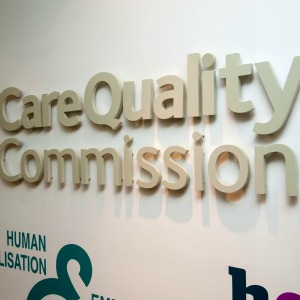CQC considers appeals process for Ofsted-style ratings

GPs may have the chance to appeal their ‘Ofsted-style’ ratings under proposals being considered by the CQC, despite fears the plans will be prohibitively expensive.
The proposals would be in place from October, and would allow practices to challenge the new ratings system for practices, which is to be introduced at the same time.
However, the regulator’s board said the proposals, which was discussed yesterday and will be put out to public consultation next month, could ‘open the floodgates’ for large numbers of appeals, making it prohibitively expensive.
It concluded it would reserve the right to reject the proposals, admitting this would lead to providers – including GP practices – having to challenge ratings through a costly judicial review.
GP leaders warned that a poor rating could lead to a practice closing, and urged the CQC to implement the plans.
The new inspection regime for primary care will be introduced next month, but the CQC said that the first wave of practices – who will be inspected from April to October this year – will not be given ratings.
When the ratings are introduced, practices will be awarded a mark of ‘outstanding’, ‘good’, ‘needs improvement’ or ‘inadequate’.
Related stories
Analysis: GPs gearing up for ‘Ofsted-style’ ratings
Revealed: Only 44 CQC inspections since July last year included a GP on the inspection team
The board paper said: ‘This paper makes proposals to enable challenges to the outputs of inspections: reports, warning notices and ratings. These are not covered by the tribunal and challenges can be escalated up to judicial review.’
‘Establishing an appeals process will reduce the risk of challenge escalating that far and allow for a more transparent and open regulatory relationship with providers.’
However, it also warned that the process could be costly for the CQC.
It added: ‘The board should be aware that we would need to engage very senior individuals to review appeals, and we would usually need to reimburse inspection chairs. Daily costs for these reviewers are likely to be between £1,000-2,000 per day that they work.’
CQC chairman David Prior concluded the paper should go forward for a public consultation on appeals, due on 9 April, but added a note of scepticism, giving the opportunity for the board to reject the proposals.
He said: ‘The presumption is that we carry on [consulting on the proposals], but this is a rebuttable presumption. We can come back on this, can’t we? Before October? In the light of what we hear from people or our own views.’
Board members raised concerns that the process would ‘open the floodgates’ for appeals.
Michael Mire, a CQC a management consultant at McKinsey & Company, said: ‘Should we have an appeals process or should our stance be “we’re an evidence based organisation, which makes highly professional judgements with great integrity. And if you think there’s legal grounds for disagreeing, that’s up to you.”’
‘Should we take this quite tough line that about the policy of the judgements and the ratings that we give, and don’t have this appeals process which could open the floodgates?’
However, Dr Peter Swinyard, chair of the Family Doctors Association, said: ‘In the extreme circumstance, a bad rating could close the practice. Patients don’t want to go somewhere where they get substandard care. If people make a link between a low CQC rating and poor standard of care – and that is not a proven link – they will vote with their feet and go to other practices.’
‘There needs to be an appeals process. A rating is only an opinion – it is not a matter of fact.’
Pulse October survey
Take our July 2025 survey to potentially win £1.000 worth of tokens










